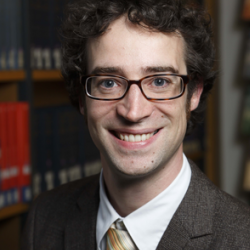Affiliations
Classifications:
Specialities:
Departments and institutes:
EPSRC Centre for Doctoral Training in Sensor Technologies and Applications in an Uncertain World
Michaël De Volder obtained his bachelor and master degree in engineering from the University of Leuven. He subsequently started his PhD studies at the same University and in part at the Tokyo Institute of Technology. He then worked as a postdoc researcher at the Massachusetts Institute of Technology, the University of Michigan, Harvard University, and the University of Leuven. He also worked for several years at imec, an industry funded microelectronics research institute, before joining the Institute for Manufacturing at the University of Cambridge.
Dr De Volder’s research focuses on the fabrication of structures and assemblies of new carbon nanomaterials such as carbon nanotubes (CNTs) and graphene. These nanoparticles have been pivotal in attracting industry’s interest in nanotechnology. This can best be quantified by the production capacity of Carbon Nanotubes (CNTs) which is currently estimated to be several thousand tons per year. In part, the success of these nanomaterials can be attributed to their physical properties, some of which are unlike any other engineering material. Assets of CNTs and graphene include a stiffness and tensile strength far superior to steel at only a fraction of its weight, combined with unique thermal and electrical properties.
Importantly, these off-the-chart properties only apply to high quality individual tubes or sheets. Most commercial applications on the other hand require tens to millions of nanoparticles to be assembled into one device. Unfortunately, figures of merit of such assemblies drop with at least an order of magnitude in comparison to the constituent nanoparticles. At this juncture, it is therefore mandatory to expand our knowledge about the structuring and organization of nanomaterials.
Dr De Volder's research focuses on the hypothesis that a holistic multi-scale approach in the assembly of nanoparticles will foster the development of improved material properties. Specifically, the aim is to simultaneously control material properties at lengthscales, ranging from sub-nanometer surface chemistry, to nanoscale morphology, microscale geometry, and macroscale embodiment. The lack of processes enabling to manufacture such hierarchical materials in high-throughput and cost-effective manner is a major bottleneck in the development of new nanomaterial based products. The realisation of such manufacturing processes is a highly multi-disciplinary engineering challenge involving chemistry and material science, and also mechanical design and manufacturing. Ultimately, improved nanomaterial processing will contribute to societal challenges such as improved energy storage devices, and water filtration.

Sensor CDT
Department of Chemical Engineering and Biotechnology
Philippa Fawcett Drive
Cambridge
CB3 0AS

© 2025 University of Cambridge